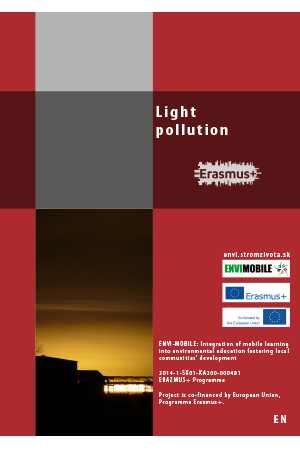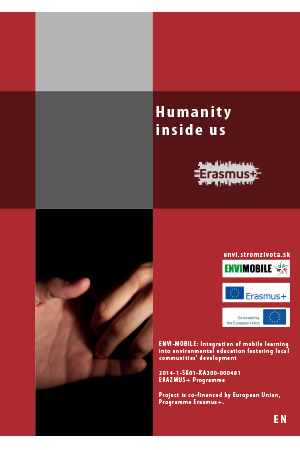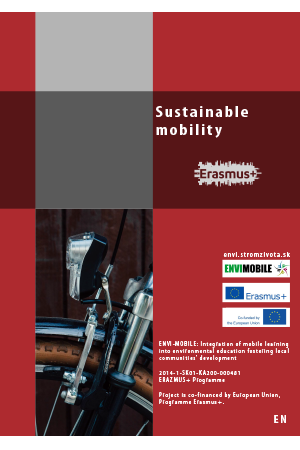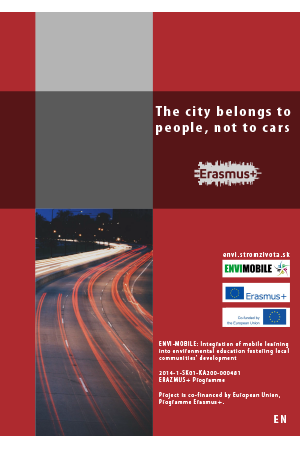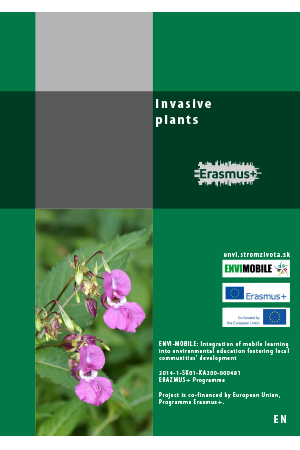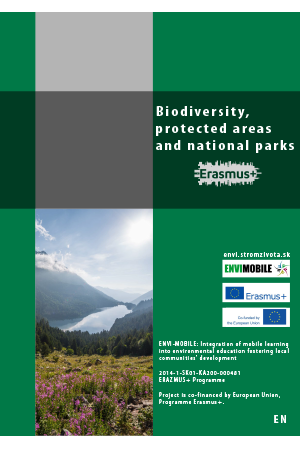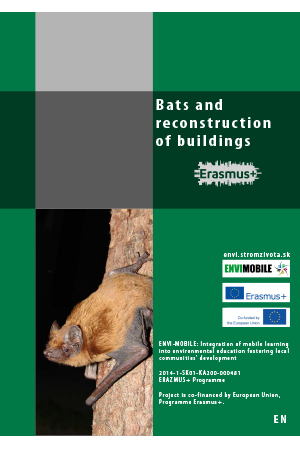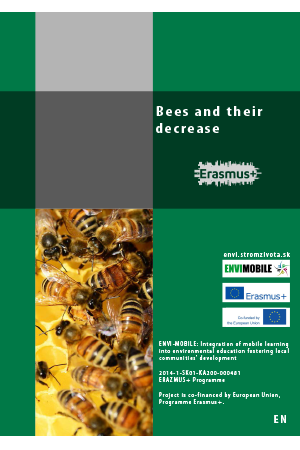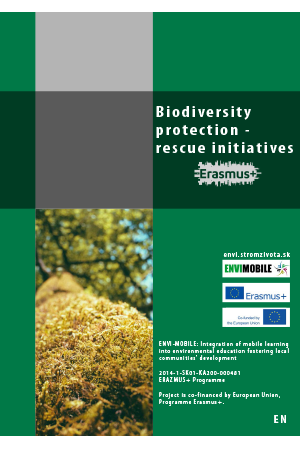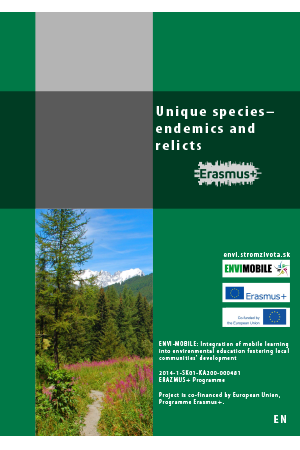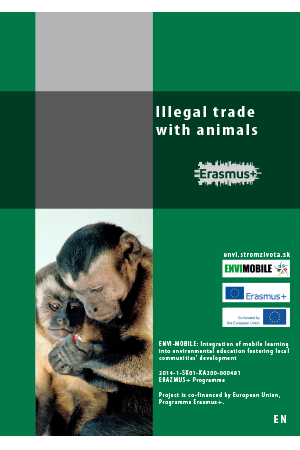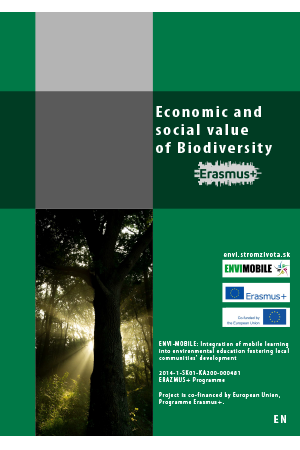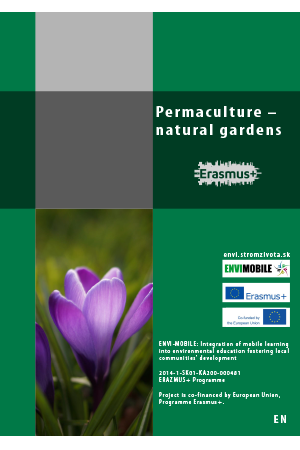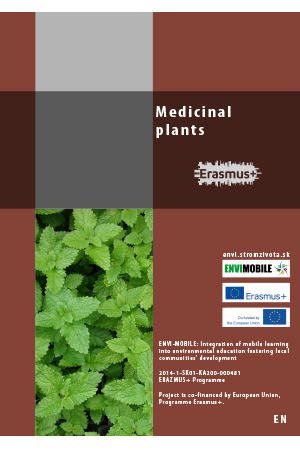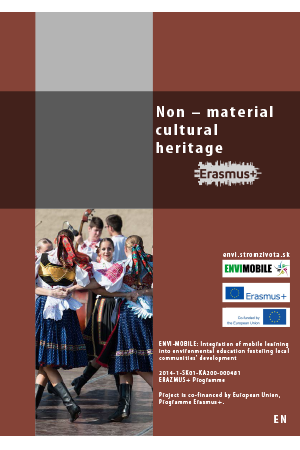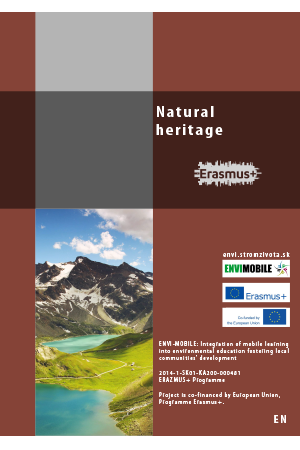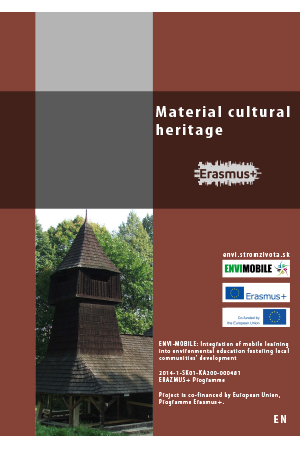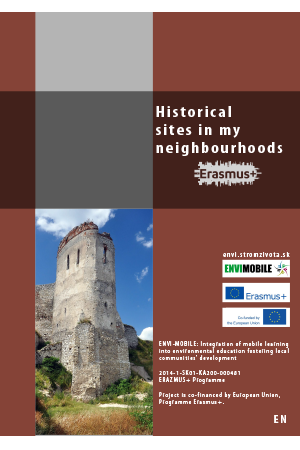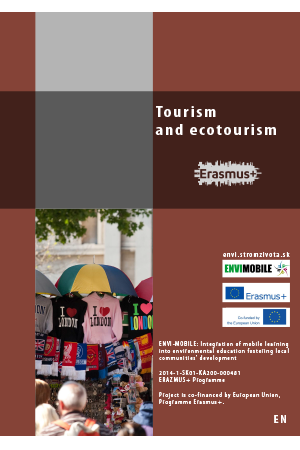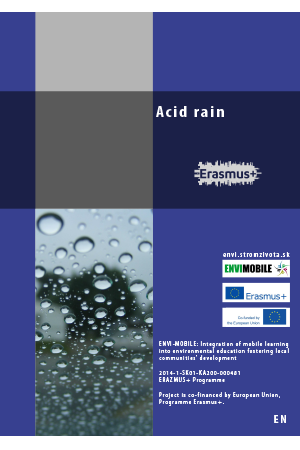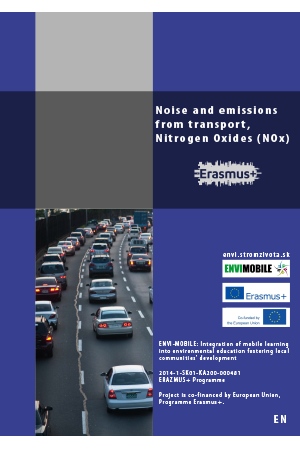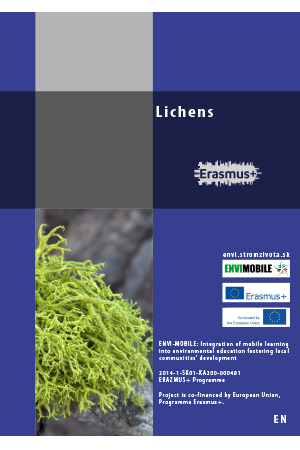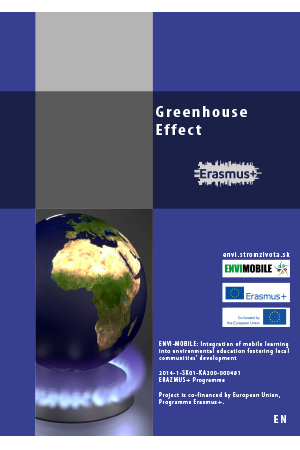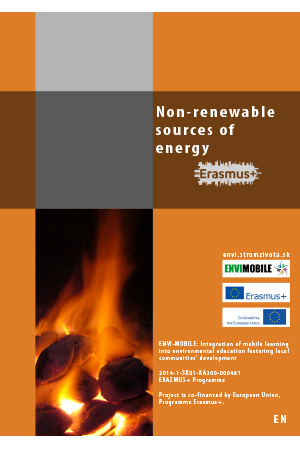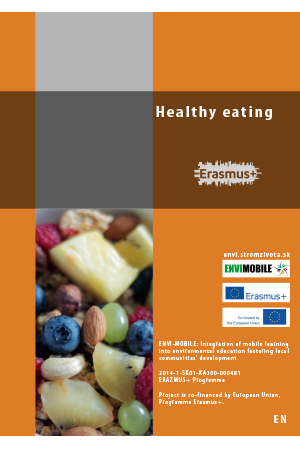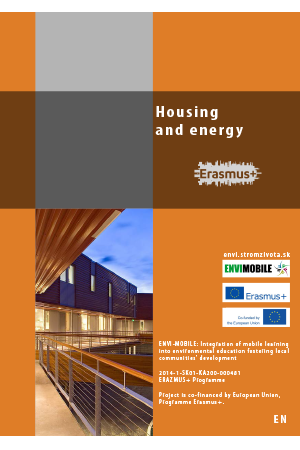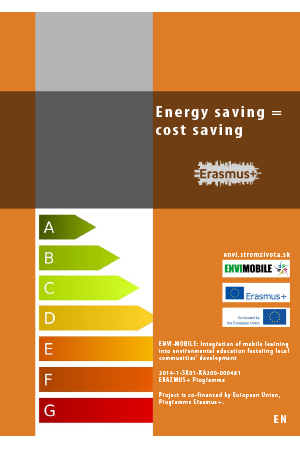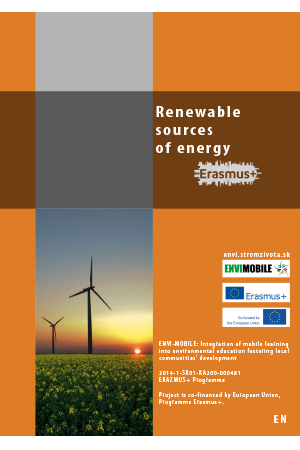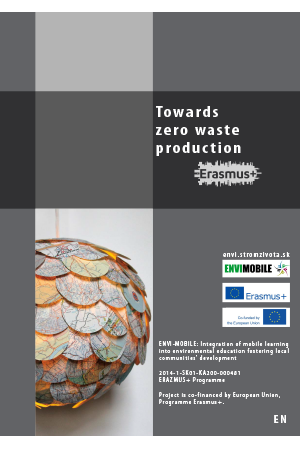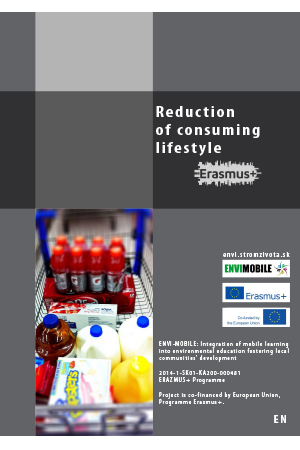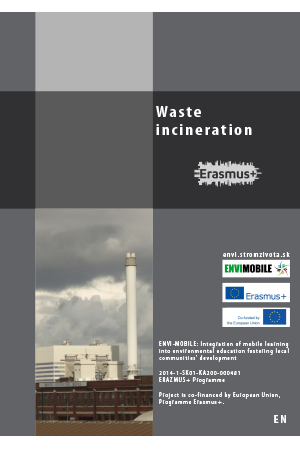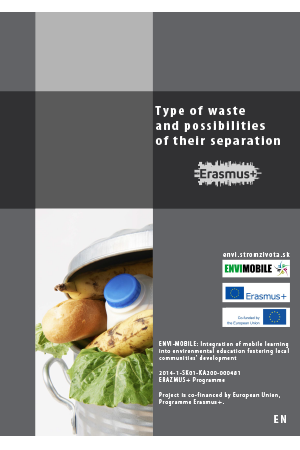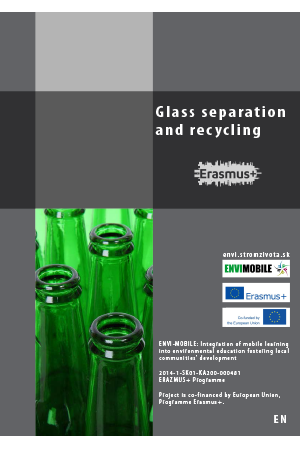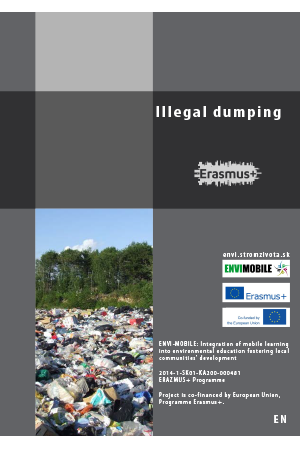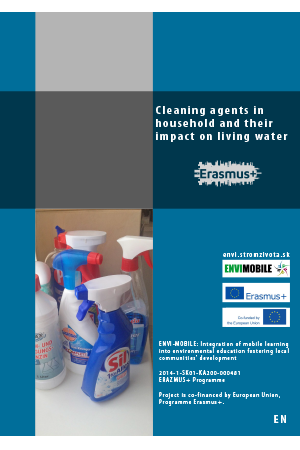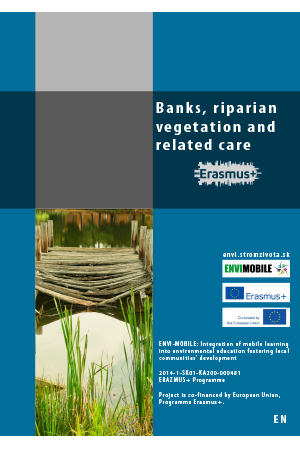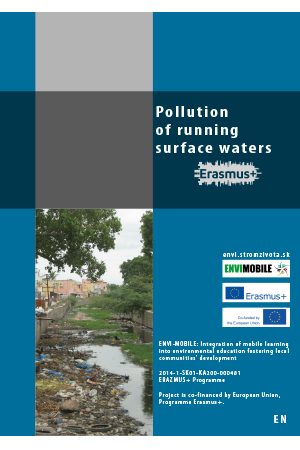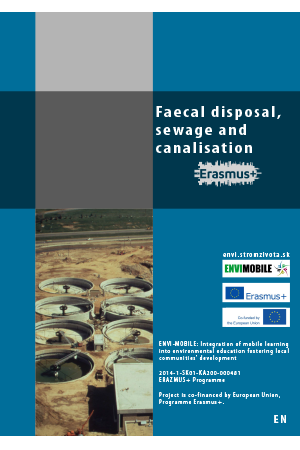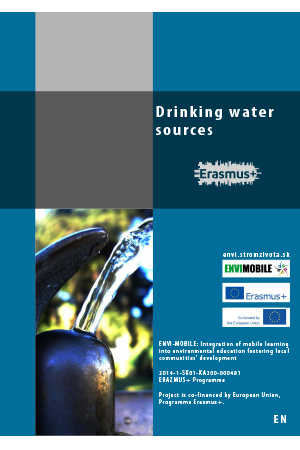Verejné projekty
ERASMUS+ programme, 2014-2016
TITLE: ENVI-MOBILE: Integration of mobile learning into environmental education fostering local communities development
Contract number: 2014-1-SK01-KA200-000481
Bringing more innovative activities into environmental education and increasing interest and participation of local people in communities’ life.
The project objectives were:
- To provide teachers of primary and secondary schools with relevant and innovative teaching and learning materials focused on environmental education.
- To combine general subjects and foreign language teaching (CLIL).
- To integrate cross – subject environmental education concept into the teaching process.
- To improve the level of key competencies and skills of target groups in science and technology and ICT skills.
To fulfill the specific project objectives we have produced the following outcomes/ outputs:
a) Database of at least 500 interactive environmental questions, downloadable through application, providing also a learning resource for environmental education in foreign language.
b) Pedagogical materials - 50 methodologies for cross - subject teaching of environmental education fostering local communities’ development through pro - environmental thinking and supporting the development of science, language and ICT skills.
c) Needs analyses study which has identified the key areas of environmental education for particular local communities.
To effectively deliver the project outcomes towards the target group and other potential beneficiaries, following events have been organized:
- 4 international conferences
- 3 educational training events for teachers and educators involved in project outcomes` development
Project partners were:
 Strom života - a non-governmental, non - profit organization active in the field of environmental education and cultural heritage preservation in Slovakia already for 40 years. Main target group of the organization are children in kindergartens, elementary school children and youth in general. The organization provides services for these groups by creating variety of programs focused on environmental education at all levels, including preservation events, publishing activities, environmental competitions and many other.
Strom života - a non-governmental, non - profit organization active in the field of environmental education and cultural heritage preservation in Slovakia already for 40 years. Main target group of the organization are children in kindergartens, elementary school children and youth in general. The organization provides services for these groups by creating variety of programs focused on environmental education at all levels, including preservation events, publishing activities, environmental competitions and many other.
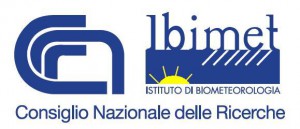 IBIMET-CNR was founded in 2000 by the merge of four different Institutes working in the field of monitoring, environmental analysis and rural development, as part of the Agri-Food Department of the National Research Council of Italy (CNR). IBIMET-CNR employs 60 people on permanent contracts and around 50 on temporary contracts, with background in agriculture, forestry, physics and economy, as well as social and political sciences. IBIMET-CNR applies a multidisciplinary approach in several research fields, such as rural development and environmental conservation. For the last decade, IBIMET-CNR has been focusing on topics related to cultural heritage, conservation, rural development and agriculture both in Europe and in Developing Countries. IBIMET-CNR aims also to overcome the gap between society and science. Over the years, IBIMET-CNR has been engaged in dissemination activities of scientific and educational programs directed to/for adults and students, providing knowledge and expertise on climate, meteorology and their connection to the environment.
IBIMET-CNR was founded in 2000 by the merge of four different Institutes working in the field of monitoring, environmental analysis and rural development, as part of the Agri-Food Department of the National Research Council of Italy (CNR). IBIMET-CNR employs 60 people on permanent contracts and around 50 on temporary contracts, with background in agriculture, forestry, physics and economy, as well as social and political sciences. IBIMET-CNR applies a multidisciplinary approach in several research fields, such as rural development and environmental conservation. For the last decade, IBIMET-CNR has been focusing on topics related to cultural heritage, conservation, rural development and agriculture both in Europe and in Developing Countries. IBIMET-CNR aims also to overcome the gap between society and science. Over the years, IBIMET-CNR has been engaged in dissemination activities of scientific and educational programs directed to/for adults and students, providing knowledge and expertise on climate, meteorology and their connection to the environment.
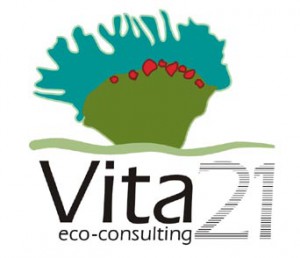 VITA XXI SLP is a micro enterprise established in Murcia, South - East Spain in 2001, providing consulting services for environmental and educational projects. It has been working for Spanish Government for more than nine years dealing with environmental project management in SE of Spain protected areas. VITA XXI SLP representatives were responsible for training, community participation and outdoors outreach biodiversity conservation projects. They provide services on Education, Landscape ecology and Planning and alternative Energy advice based on local and international experience.
VITA XXI SLP is a micro enterprise established in Murcia, South - East Spain in 2001, providing consulting services for environmental and educational projects. It has been working for Spanish Government for more than nine years dealing with environmental project management in SE of Spain protected areas. VITA XXI SLP representatives were responsible for training, community participation and outdoors outreach biodiversity conservation projects. They provide services on Education, Landscape ecology and Planning and alternative Energy advice based on local and international experience.
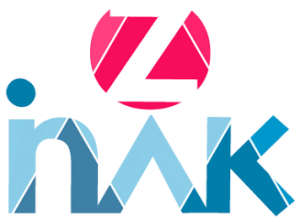 "INAK" is an NGO established in the spring 2014, with focus on the development of human resources through providing educational support activities to various target groups. "INAK" supports the principles of lifelong learning, nature and environment protection, building relations to natural and cultural heritage of Slovakia. "INAK" activities are focused on development of human resources through running educational programmes and trainings, developing methodologies, supporting skills of people leading to local community development, while using "Innovation and Creativity" principles.
"INAK" is an NGO established in the spring 2014, with focus on the development of human resources through providing educational support activities to various target groups. "INAK" supports the principles of lifelong learning, nature and environment protection, building relations to natural and cultural heritage of Slovakia. "INAK" activities are focused on development of human resources through running educational programmes and trainings, developing methodologies, supporting skills of people leading to local community development, while using "Innovation and Creativity" principles.
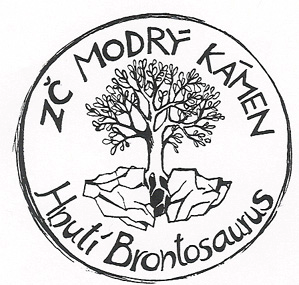 Civil Association Zakladni clanek HB Modry kamen (founded on 1994), is mainly focused on general personal development of youth, activation of positive interpersonal relationships and exploitation of the principles for sustainable living among the young people. With up to 50 members of association and hundreds of supporters, they organize several events every year in Czech Republic as well as abroad – such as young exchange (within the programme Youth in Action). Since 2012 they have been providing the educational programmes for school teachers and pupils, aimed at environmental education and old fashioned handicrafts. Our ongoing programmes are, in particular, focused on rationale of sustainable development, environmental education, aesthetics, art, creativity, handiness, personal self-knowledge, relationships` society enhancement and building the positive attitude and respect towards peoples` culture and nationality. Since 2006 ZC HB Modry kamen has been running the local Ecological centre Svycarna, placed in beautiful countryside in Moravsky kras.
Civil Association Zakladni clanek HB Modry kamen (founded on 1994), is mainly focused on general personal development of youth, activation of positive interpersonal relationships and exploitation of the principles for sustainable living among the young people. With up to 50 members of association and hundreds of supporters, they organize several events every year in Czech Republic as well as abroad – such as young exchange (within the programme Youth in Action). Since 2012 they have been providing the educational programmes for school teachers and pupils, aimed at environmental education and old fashioned handicrafts. Our ongoing programmes are, in particular, focused on rationale of sustainable development, environmental education, aesthetics, art, creativity, handiness, personal self-knowledge, relationships` society enhancement and building the positive attitude and respect towards peoples` culture and nationality. Since 2006 ZC HB Modry kamen has been running the local Ecological centre Svycarna, placed in beautiful countryside in Moravsky kras.

Outputs of the project:
Human environment - Light pollution
Human environment - Light pollution
Human environment - Humanity inside us
Human environment - Humanity inside us
Human environment - Sustainable mobility
Human environment - Sustainable mobility
Human environment - The city belongs to people, not to cars
Human environment - The city belongs to people, not to cars
Biodiversity - Invasive plants
Biodiversity - Invasive plants
Biodiversity - Biodiversity protection - rescue initiatives
Biodiversity - Biodiversity protection - rescue initiatives
Biodiversity - Bats and reconstruc tion of buildings
Biodiversity - Bats and reconstruc tion of buildings
Biodiversity - Bees and their decrease
Biodiversity - Bees and their decrease
Biodiversity - Biodiversity, protected areas and national parks
Biodiversity - Biodiversity, protected areas and national parks
Biodiversity - Unique species - endemics and relicts
Biodiversity - Unique species - endemics and relicts
Biodiversity - Illegal trade with animals
Biodiversity - Illegal trade with animals
Biodiversity - Economic and social value of Biodiversity
Biodiversity - Economic and social value of Biodiversity
Biodiversity - Permaculture - natural gardens
Biodiversity - Permaculture - natural gardens
Natural heritage - Medicinal plants
Natural heritage - Medicinal plants
Natural heritage - Non-material cultural heritage
Natural heritage - Non-material cultural heritage
Natural heritage - Natural heritage
Natural heritage - Natural heritage
Natural heritage - Material cultural heritage
Natural heritage - Material cultural heritage
Natural heritage - Historicalsites in my neighbourhoods
Natural heritage - Historicalsites in my neighbourhoods
Natural heritage - Tourism and ecotourism
Natural heritage - Tourism and ecotourism
Air pollution - Acid rain
Air pollution - Noise and emissions from transport, Nitrogen Oxides (NOx)
Air pollution - Noise and emissions from transport, Nitrogen Oxides (NOx)
Air pollution - Lichens
Air pollution - Greenhouse Effect
Air pollution - Greenhouse Effect
Energy - Non-renewable sources of energy
Energy - Non-renewable sources of energy
Energy - Healthy eating
Energy - Housing and energy
Energy - Energy saving = cost saving
Energy - Energy saving = cost saving
Energy - Renewable sources of energy
Energy - Renewable sources of energy
Waste - Towards zero waste production
Waste - Towards zero waste production
Waste - Reduction of consuming l i festyle
Waste - Reduction of consuming l i festyle
Waste - Waste incineration
Waste - Type of waste and possibilities of their separation
Waste - Type of waste and possibilities of their separation
Waste - Glass separation and recycling
Waste - Glass separation and recycling
Waste - Illegal dumping
Water - Cleaning agents in household and their impact on living water
Water - Cleaning agents in household and their impact on living water
Water - Banks, riparian vegetation and related care
Water - Banks, riparian vegetation and related care
Water - Pollution of running surface waters
Water - Pollution of running surface waters
Water - Faecal disposal, sewage and canalisation
Water - Faecal disposal, sewage and canalisation
Water - Drinking water sources
Water - Drinking water sources

